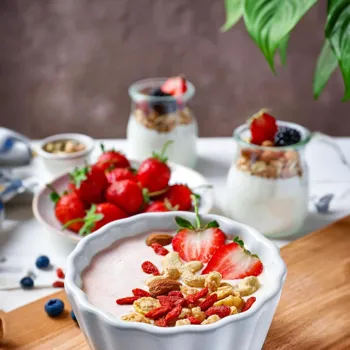Unveiling the Breakfast Debate: Myth or Truth? Dive into Morning Nutrition to Decode the Science. Find out more!
For generations, we've been told breakfast is the king of all meals. Your parents, your teachers,
maybe even that friendly uncle at family gatherings – they all likely chimed in with variations of, "Beta, never skip breakfast! It's the most important meal of the day!
" But is this age-old advice truly backed by solid evidence, or is it simply a catchy phrase that's been passed down through the ages?
Let's delve into the world of morning nutrition and uncover the science behind this breakfast buzz and understand what truly matters when it comes to fueling your body for the day ahead.
Having breakfast kickstarts metabolism, boosts energy, and improves focus and weight management
The idea of breakfast being crucial stems from the notion that after a night of fasting – typically 8-12 hours – your body's fuel reserves are depleted.

By having a morning meal, you're essentially "breaking the fast" and replenishing those reserves, kickstarting your metabolism and providing the energy needed to tackle the day.
Studies in the past have often linked breakfast consumption to various benefits, including improved concentration, better memory, enhanced academic performance (especially in children), and even a lower risk of weight gain.
These were crucial driving forces for breakfast becoming the most important meal of the day and made everyone rethink about the value of having a good breakfast every day.
Morning nutrition needs vary; no one-size-fits-all approach
However, recent research is painting a more nuanced picture. While the benefits mentioned earlier are indeed valid, they might not apply to everyone equally. The "breakfast is king" narrative often overlooks the fact that individual needs and lifestyles vary significantly.
For example, someone who follows an intermittent fasting routine might intentionally skip breakfast and still experience positive health outcomes. Similarly, people with different activity levels, metabolic rates, and dietary preferences will have varying nutritional requirements in the morning.
Considering these factors is fundamental when deciding how the mornings need to begin. It’s not about one-size-fits-all but about figuring out what is the right thing for you.
Quality breakfast crucial for sustained energy & health, not just eating
The quality of breakfast is far more important than simply whether or not you eat it. A breakfast consisting of sugary cereals, processed pastries, or oily snacks might provide a temporary energy boost, but it's unlikely to offer sustained energy or essential nutrients.
Such a breakfast can lead to a rapid spike in blood sugar, followed by a crash, leaving you feeling sluggish and craving more unhealthy foods.
On the other hand, a breakfast rich in whole grains, fruits, vegetables, and protein can provide sustained energy, improve satiety, and support overall health. Having a good breakfast is important but having the correct type of breakfast is way more important.
Build a balanced breakfast: whole grains, protein, fruit; watch sugar
So, what should a healthy and fulfilling breakfast look like, then? Rather than thinking of rigid rules, focus on building your plate smartly. Opt for some whole grains like oats, whole wheat bread, or poha. Add a source of protein such as sprouts, a small bowl of yogurt, or a handful of nuts.
Also, dont forget fresh fruit either in solid form or drink in the form of juice. This will bring in essential vitamins and minerals. Be mindful of the ingredients and portion sizes to create a balanced and nutritious start to your day.
Don't add too much sugar to your breakfast, either directly or indirectly, as this can cause spikes in blood sugar levels.
Importance of breakfast varies; prioritize balanced diet & lifestyle
Ultimately, the question of whether breakfast is the "most important meal" is a matter of perspective and individual needs.
Instead of blindly adhering to this age-old saying, focus on listening to your body, understanding your nutritional requirements, and making informed choices about what and when you eat. For some, a nourishing breakfast might be the perfect way to jumpstart their day.
For others, it may not be necessary or even desirable. The key is to prioritize a balanced diet and a healthy lifestyle overall, regardless of whether you choose to eat breakfast or not.
AI Generated Content. Glance/InMobi shall have no liability for the content




















